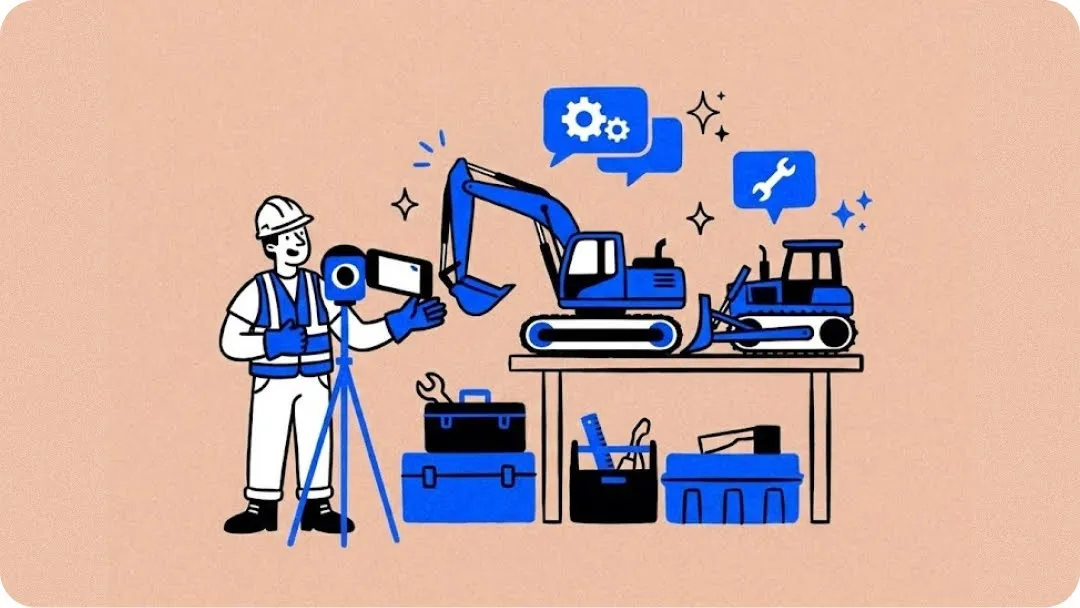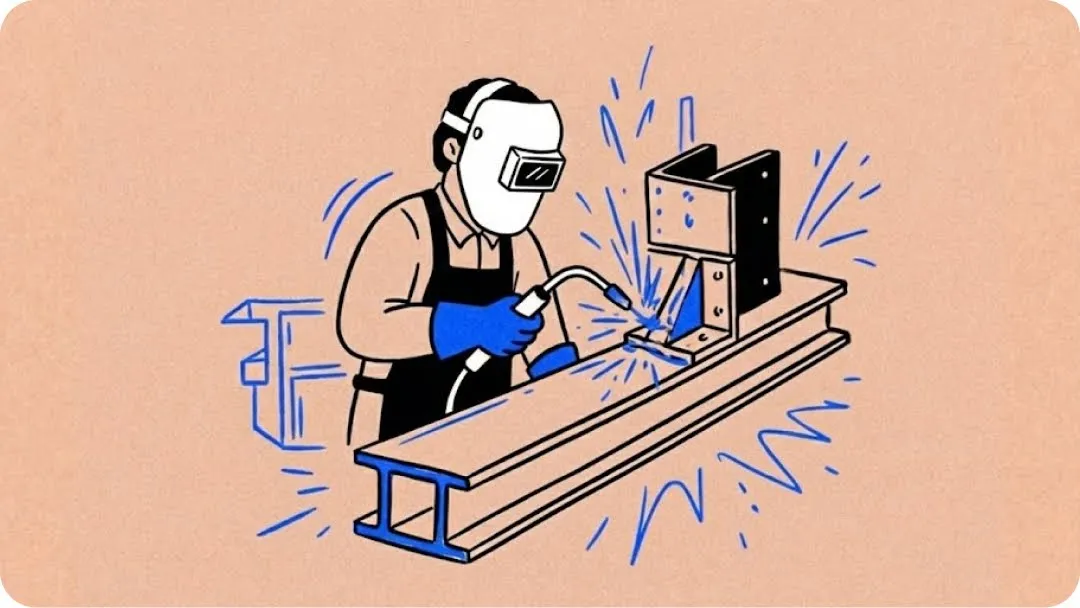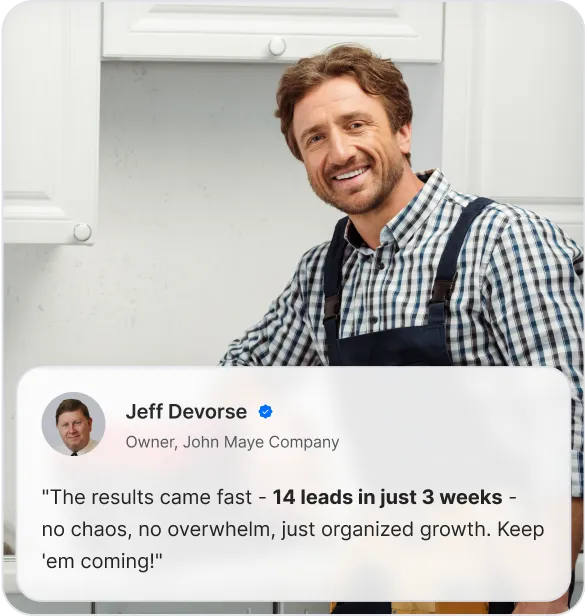You just watched a $400K deal walk out the door.
Your equipment was better. Your delivery timeline was faster. Your price was competitive.
But the buyer chose your competitor because their sales rep could instantly calculate ROI, explain integration challenges, and answer every technical question on the spot. Your rep said "Let me get back to you on that" three times in one meeting.
Here's what stings: This happens to manufacturers every single day. You're losing profitable deals not because you can't deliver, but because you can't prove it when it matters.
Every month you delay proper sales training, your competitors are stealing deals that should be yours. Not because they're cheaper or better—because their reps sound more credible when it counts.
The manufacturers winning today aren't just building better products. They're building sales teams that can effectively sell to them. While you're hoping your reps will "figure it out," they're systematically training theirs to close deals faster and at higher margins.
Here’s what a Reddit user said about sales leaders being bad trainers.

This shows how your star salesperson became your sales manager because he could sell. Not because he could teach.
He can't explain why his methods work. So new hires learn by copying him, picking up bad habits along with good ones. The gap isn't huge. But it's costing you deals and $$$, of course.
The right sales training can close that gap fast.
Research says that for every $1 spent on sales training, companies are making $3.50 back. That's real money left on the table. Yes, a 350% return on investment!
Yet 1 in 4 industrial companies spend absolutely nothing on training their sales team.
The ones that do try? Mostly just stick their top performer in a room and say, "teach them what you do."
So, how can you make it better?
Your Sales Team Is Costing You Money Every Day
Here's the uncomfortable truth: Your sales reps are having the same conversation with prospects that your competitors' reps are having. But one team is consistently winning more deals.
The difference isn't your product—it's preparation.
When your rep can't immediately explain why your 5-year warranty matters more than a competitor's 3-year warranty, you lose credibility. When they can't calculate the payback period on the spot, the buyer starts wondering what else they don't know. When they promise to "follow up with specifications" instead of having them ready, the buyer moves you to their backup list.
Every untrained rep interaction costs you in three ways:
- Lost deals: Buyers don't give second chances when reps can't answer basic questions
- Damaged reputation: Word spreads fast in manufacturing circles about unprofessional sales experiences
- Wasted marketing spend: You pay for leads, trade shows, and referrals just to watch undertrained reps squander them
Today's buyers complete 70% of their research before contacting you. They're not looking for product education; they're looking for proof that you can deliver on it. Your rep has one conversation to demonstrate competence. Most fail this test.
The Real Problem: Your Reps Aren't Ready for Today's Buyers
Your experienced reps know your products. They've been in manufacturing for years. So why are deals still slipping away?
The issue isn't product knowledge—it's that buyer behavior has fundamentally changed. Your prospects now complete most of their research before contacting you. They come to sales conversations with specific questions, clear expectations, and predetermined alternatives.
Most reps still approach these conversations like it's 2010: leading with product features, asking generic discovery questions, and hoping to "build relationships" over multiple calls.
That approach fails with today's time-pressed, well-informed buyers.
The Real Cost: Deals You Don't Even Know You Lost
The deals you lose to "We're going with another supplier" are obvious. But what about the prospects who just disappear? The ones who requested quotes but never responded? The warm referrals that went cold after the first meeting?
These are the deals your untrained reps are killing without you realizing it.
Manufacturing buyers don't usually tell you why they chose someone else. They just stop returning calls. So you blame market conditions, pricing pressure, or "bad leads" instead of recognizing that your sales process is the problem.
What Manufacturing Sales Training Actually Fixes
Manufacturing isn't like other industries. You're not selling software or services. You're selling machines, parts, and equipment that directly impact how other businesses operate.
Your sales team needs to hold real conversations with industrial engineers and procurement heads—people who know more about the industry than your reps do. They need to explain complex product value, not just quote prices and hope something sticks.
Here's what effective training actually teaches your team:
1. How to Handle Today's Informed Buyers
Instead of starting from scratch with product education, trained reps learn to:
- Ask smart questions that reveal what buyers already know
- Fill in gaps rather than repeat what they've already researched
- Position your advantages against specific competitors
- Address concerns before they become objections
Real example: When a buyer says, "Your competitor is 5% cheaper," untrained reps panic or start discounting. Trained reps respond with, "Help me understand what's most important beyond price—is it delivery time, technical support, or long-term reliability?"
2. How to Navigate Complex Sales Cycles
Manufacturing sales cycles can easily stretch up to 6-18 months.

However, trained reps learn to:
- Map out all decision-makers from day one
- Understand each stakeholder's priorities and concerns
- Keep deals moving with the right follow-up at the right time
- Recognize when deals are stalling and how to restart momentum
3. How to Close Without Being Pushy
Engineers and procurement professionals hate being "sold to." Training teaches reps how to:
- Guide buyers through their decision process naturally
- Provide the exact information needed at each stage
- Build trust through expertise, not relationship fluff
- Make it easy for buyers to choose you
Does this sound like what your team needs? Here's how to make it happen.
The 5 Areas Your Manufacturing Sales Training Must Cover
1. Product Knowledge That Actually Matters
Your reps need more than feature lists. They need to understand:
- How your products solve specific manufacturing problems
- ROI calculations that matter to buyers
- Integration challenges and solutions
- Competitive advantages that actually differentiate you
Quick test: Can your newest rep explain why your product is worth 10% more than the competition in 30 seconds? If not, you've found your starting point.
2. Strategic Account Management
Your top 20% of customers generate 80% of your revenue. Yet most reps treat all accounts the same. Training should cover:
- Quarterly business reviews that add value
- Growth opportunity identification
- Proactive problem-solving before issues escalate
- Contract renewal strategies that increase wallet share
3. Modern Buyer Psychology
Buyers today are different. Training helps reps understand:
- Why buyers prefer to research independently first
- How to add value beyond product information
- When to push forward vs. when to give space
- How to handle buyers who've already decided on competitors
4. Sales and Marketing Alignment
Gartner research says that 75% of B2B buyers prefer a no-reps sales experience. But self-service purchases are far more likely to result in purchase regret.
Sales and marketing must be able to identify the right mix of digital and human interaction to drive profitable purchase decisions.
Here's what most manufacturers miss: Your marketing should make selling easier, not harder. When sales and marketing work together:
- Reps know which content to share at each stage
- Marketing creates materials that actually help close deals
- Follow-up sequences nurture leads automatically
- Everyone speaks with the same brand voice
Trained reps learn to use marketing materials strategically instead of just dumping brochures on prospects.
5. Systematic Follow-Up
Most deals die between months 3-5 when momentum fades. Training provides:
- Stage-by-stage follow-up templates
- Methods to restart stalled conversations
- Ways to stay top-of-mind without being annoying
- Clear criteria for when to keep pushing vs. when to walk away
Why Most Training Programs Fail (And How to Avoid It)
Even good training can fail if you make these common mistakes:
Mistake #1: Treating Training Like a One-Time Event
The Problem: Two-day workshop, then nothing. Reps revert to old habits within weeks.
The Fix: Break training into bite-sized, ongoing sessions. Weekly 30-minute role-plays work better than quarterly all-day sessions.
Mistake #2: Too Much Theory, Not Enough Practice
The Problem: PowerPoint presentations about "consultative selling" that don't translate to real conversations.
The Fix: Use actual scenarios your reps face. Practice handling "Your competitor is cheaper" or "Send me a quote first" objections until responses become natural.
Mistake #3: No Management Buy-In
The Problem: Reps learn new methods, but managers still only track monthly targets.
The Fix: Train your sales managers too. Have them review call quality, not just quantity. When management reinforces training, reps know it matters.
Mistake #4: Resistance from Experienced Reps
The Problem: Your veteran reps think they don't need training and stick to old methods.
The Fix: Don't force change. Show results. When a newer rep using new methods closes a big deal, share that success. Make it easy to try new approaches without abandoning what already works.
But Here's the Real Challenge: Where Are the Leads Coming From?
You can train your team perfectly, but if they're not talking to enough qualified prospects, even the best sales skills won't matter.
Think about it: Trade shows happen twice a year. Google Ads stop working the moment you stop paying. Referrals are unpredictable.
Today's buyers don't wait for you to find them. They search online, read content, and compare options before they ever pick up the phone.
If your brand doesn't show up during that research phase, you're not even in the running.
This is where sales training needs support from consistent lead generation:
- Helpful content that answers buyer questions and positions you as the expert
- Product pages that clearly explain your offerings without requiring a sales call
- Strategic online presence that captures interest from active buyers
- Follow-up systems that nurture prospects until they're ready to buy
When your sales team has a steady stream of warm, qualified leads to work with, their training actually pays off.
Your Next Step: Don't Try to Do Everything at Once
Start with these three simple actions this week:
- Identify your biggest training gap. Is it product knowledge? Handling objections? Follow-up? Pick one.
- Create one piece of helpful content. Write a blog post answering your most common customer question. This supports both training and lead generation.
- Track what's working. Which lead sources produce the best customers? Which reps close deals fastest? Focus your efforts there.
Remember: Your competitors are already training their teams and building systematic lead generation. The question isn't whether you need both—it's how quickly you can implement them.
How Gushwork Supports Your Sales Training Investment
You don't need a massive team or complex systems. Gushwork helps manufacturers build the marketing foundation that makes sales training actually work:
- Lead generation through targeted content and strategic online presence
- Sales enablement materials that support your newly trained team
- Follow-up systems that nurture prospects automatically
- Performance tracking that shows which efforts drive real results
You focus on your products and training your team. We handle the systems that bring qualified buyers to your door.
Ready to stop losing deals to competitors? Your sales training is only as good as the prospects your team gets to practice on.
FAQs
1. How to get into sales for manufacturing?
Start by learning about the products and industry basics, whether it’s machines, parts, or supplies. Gain experience in customer service or sales roles to build communication skills. Networking with manufacturers and attending trade shows really helps. Consider sales training specific to manufacturing to understand buyer needs and sales cycles. Strong technical knowledge combined with sales skills is key.
2. How to Break into Industrial/Manufacturing Sales?
Focus on understanding complex products and buyer challenges. Get familiar with the manufacturing sales cycle and decision-making process. Seek out entry-level roles or internships in industrial sales. Training programs that cover technical knowledge and sales techniques for manufacturers can give you a big advantage.
3. What skills are needed for manufacturing sales training?
Major skills include product knowledge, communication, negotiation, and understanding customer needs. Training also covers managing long sales cycles and working with multiple decision-makers. Adaptability and problem-solving are also important.
4. Why is sales training important for manufacturers?
Manufacturing sales involve complex products and long decision processes. Training equips reps to handle technical questions, build trust, and navigate multiple stakeholders, improving closing rates and customer retention.
5. How can sales training improve manufacturing sales performance?
Training provides reps with structured processes, better product knowledge, and effective communication strategies. This reduces lost deals, shortens sales cycles, and increases revenue by aligning sales efforts with modern buyer behaviors.



















.webp)








.webp)

.svg)


.svg)
.svg)
.svg)




.svg)


